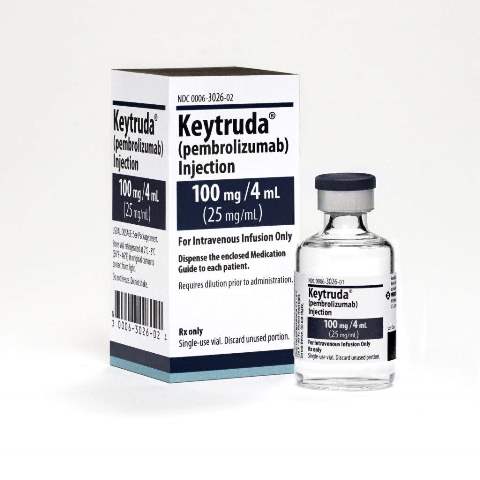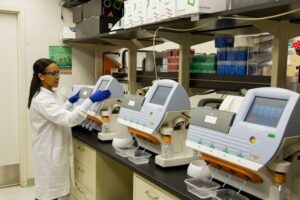Merck announced that the U.S. Food and Drug Administration (FDA) has accepted and granted priority review for a new supplemental Biologics License Application (sBLA) for KEYTRUDA, Merck’s anti-PD-1 therapy, in combination with platinum and fluoropyrimidine based chemotherapy for the first-line treatment of patients with locally advanced unresectable or metastatic carcinoma of the esophagus and gastroesophageal junction (GEJ).

Merck’s anti-PD-1 therapy Keytruda (Credit: Merck Sharp & Dohme Corp.)
Subscribe to our email newsletter
This sBLA is based on data from the pivotal Phase 3 KEYNOTE-590 trial, in which KEYTRUDA plus chemotherapy demonstrated significant improvements in the primary endpoints – overall survival (OS) and progression-free survival (PFS) – versus chemotherapy in these patients regardless of PD-L1 expression status and tumor histology. These data were presented at the European Society for Medical Oncology (ESMO) Virtual Congress 2020. The FDA has set a Prescription Drug User Fee Act (PDUFA), or target action, date of April 13, 2021.
“Patients with newly diagnosed esophageal and GEJ cancer face an aggressive disease with a poor prognosis, despite the currently available treatment options,” said Dr. Vicki Goodman, vice president, clinical research, Merck Research Laboratories. “We look forward to working with the FDA to bring a new option to patients in the first-line setting.”
KEYTRUDA is currently approved in the U.S., China and Japan as monotherapy for the second-line treatment of patients with recurrent locally advanced or metastatic squamous cell carcinoma of the esophagus whose tumors express PD-L1 (Combined Positive Score [CPS] ≥10). Merck is continuing to study KEYTRUDA across multiple settings and stages of gastrointestinal cancer – including gastric, hepatobiliary, esophageal, pancreatic, colorectal and anal cancers – through its broad clinical program.
Source: Company Press Release
 Advertise With UsAdvertise on our extensive network of industry websites and newsletters.
Advertise With UsAdvertise on our extensive network of industry websites and newsletters.
 Get the PBR newsletterSign up to our free email to get all the latest PBR
news.
Get the PBR newsletterSign up to our free email to get all the latest PBR
news.

